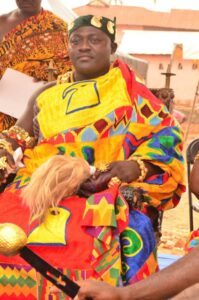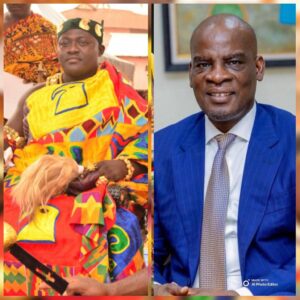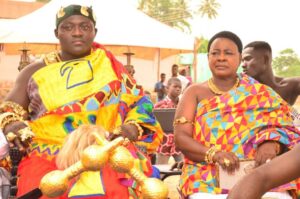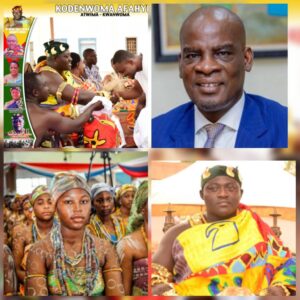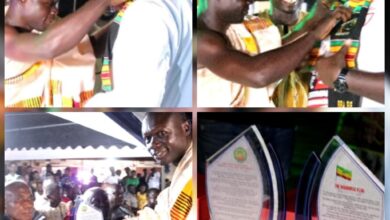Haruna Iddrisu’s Language Revolution Wins Kwanwoma Chief’s Heart
Haruna Iddrisu’s Language Revolution Wins Kwanwoma Chief’s Heart
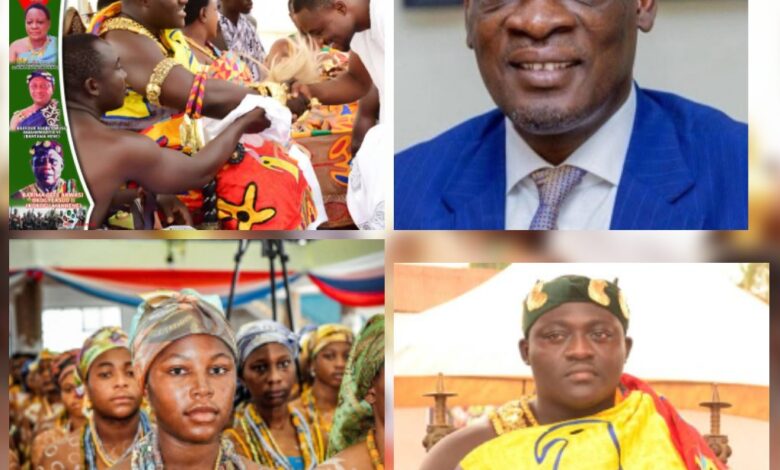
Share this
Haruna Iddrisu’s Language Revolution Wins Kwanwoma Chief’s Heart
By: Justice Baffour// www.dailywatchgh.com
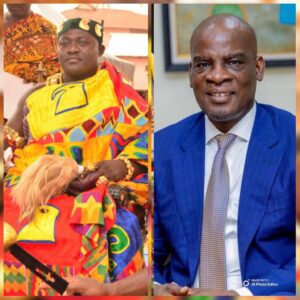
Kwanwoma, Ashanti Region,In a rousing endorsement, the Chief of Kwanwoma, Nana Amponsah Kwaa IV, has hailed the Minister for Education, Hon. Haruna Iddrisu, for what he describes as a historic and culture-saving decision,making the use of Ghanaian local languages compulsory in all schools nationwide.
The outspoken traditional leader, known for his consistent advocacy for indigenous language instruction, said the directive marks the fulfillment of a lifelong dream to see Ghana’s classrooms reflect the nation’s true cultural identity.
“This is what I have always fought for! It’s a dream come true,a victory for culture, for education, and for every Ghanaian child,”
Nana Amponsah Kwaa IV declared with excitement.
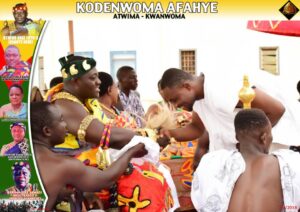
Nana Amponsah Kwaa IV’s joy is deeply rooted in his long campaign for language reform. In a GhanaWeb publication dated May 13, 2018, he appealed to government to make local language teaching compulsory, a call he says has now been answered after years of persistent advocacy.
He described the new directive as “a revolution in education”, explaining that students learn best when taught in languages they understand.
“When a child understands the language of instruction, knowledge flows easily. This policy will shape a new generation of confident, culturally rooted Ghanaians,” he stressed.

The Kwanwoma Chief further urged teachers, parents, and education directors to embrace and implement the new policy wholeheartedly, noting that Ghana must never allow foreign languages to overshadow its heritage.
According to him, the move will bridge learning gaps, boost classroom participation, and preserve the nation’s cultural soul for future generations.
The directive by Minister Iddrisu has since ignited widespread national discussion, with many describing it as a bold and transformative step in Ghana’s quest to redefine its education system through cultural relevance.
